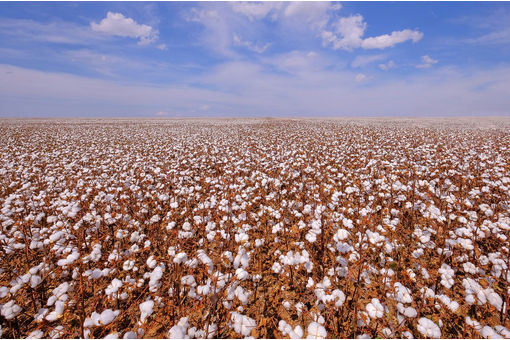Interviews
TEA makes strong pitch for free trade agreements
12 May '16
3 min read
Making a strong case of expediting free trade agreements with the European Union and Special agreements with Australia and Canada, the Tirupur Exporters Association, said that special trade ties with these countries alone could boost readymade garment exports by 40 per cent, out of which 30 per cent could be to the EU and alone.
In a memorandum to the Textiles Secretary, Rashmi Verma during her visit to the knitwear hub, TEA said last year the garment sector exported readymade garments (RMG) worth $17 billion out of which, $6.29 billion value of garment was destined to European Union. There is still strong potential to enhance exports there once the level playing field is provided to the sector, TEA said.
While India is still awaiting confirmation from the EU to resume the negotiations for the proposed free trade agreement, that TEA seemed more optimistic than the government. “Once the FTA with EU would come through in September this year, our exports to EU will grow and witness a growth rate of 30 per cent in successive years and get doubled in next three years apart from witnessing an employment generation of 30 lakh jobs,” it claimed.
Requesting the Textiles Secretary to help to expedite the FTA with the EU, it said that in the recent years Indian exporters had elevated their standards to conform with EU norms and made improvements in the garment units to meet their stringent quality requirements. This had led to great improvement in their relations with the European buyers.
The eagerly awaited FTA, according to TEA, would dent the market share of its main competitor Bangladesh, which at present enjoys duty free access to European Union due to its least developed country status.
In 2014-15, out of Bangladesh's total garment exports of $26 billion, The EU received US $ 15 billion, more than double the Indian garment exports.
“We are confident that we could dent the market share of Bangladesh once Free Trade Agreement is implemented due to having additional advantage of being compliances oriented factories at our end”, the TEA maintained.
Similarly in Canada, India's competitors like Bangladesh and Cambodia are entitled to the least developed countries tariff treatment while Pakistan and Vietnam also continue to get benefit under General Preference Tariff (GPT) even after January 1, 2015. After imposition of normal customs duty about 20 per cent for Indian garments in Canada, Indian exporters have lost their competitiveness in that country, TEA said.
“We are confident that after having Comprehensive Economic Partnership Agreement (CEPA) with Canada, we could compete with these countries effectively and export will grow by 30 per cent,” TEA said in the memorandum.
TEA also requested Verma to help expedite the Comprehensive Economic Cooperation Agreement (CECA) with Australia.
According to TEA, Indian garment exports to Australia could also grow by 30 per cent once the Comprehensive Economic Cooperation Agreement (CECA) with Australia is signed.
The CECA is almost a year behind its scheduled operative date of June 2015. (SH)
In a memorandum to the Textiles Secretary, Rashmi Verma during her visit to the knitwear hub, TEA said last year the garment sector exported readymade garments (RMG) worth $17 billion out of which, $6.29 billion value of garment was destined to European Union. There is still strong potential to enhance exports there once the level playing field is provided to the sector, TEA said.
While India is still awaiting confirmation from the EU to resume the negotiations for the proposed free trade agreement, that TEA seemed more optimistic than the government. “Once the FTA with EU would come through in September this year, our exports to EU will grow and witness a growth rate of 30 per cent in successive years and get doubled in next three years apart from witnessing an employment generation of 30 lakh jobs,” it claimed.
Requesting the Textiles Secretary to help to expedite the FTA with the EU, it said that in the recent years Indian exporters had elevated their standards to conform with EU norms and made improvements in the garment units to meet their stringent quality requirements. This had led to great improvement in their relations with the European buyers.
The eagerly awaited FTA, according to TEA, would dent the market share of its main competitor Bangladesh, which at present enjoys duty free access to European Union due to its least developed country status.
In 2014-15, out of Bangladesh's total garment exports of $26 billion, The EU received US $ 15 billion, more than double the Indian garment exports.
“We are confident that we could dent the market share of Bangladesh once Free Trade Agreement is implemented due to having additional advantage of being compliances oriented factories at our end”, the TEA maintained.
Similarly in Canada, India's competitors like Bangladesh and Cambodia are entitled to the least developed countries tariff treatment while Pakistan and Vietnam also continue to get benefit under General Preference Tariff (GPT) even after January 1, 2015. After imposition of normal customs duty about 20 per cent for Indian garments in Canada, Indian exporters have lost their competitiveness in that country, TEA said.
“We are confident that after having Comprehensive Economic Partnership Agreement (CEPA) with Canada, we could compete with these countries effectively and export will grow by 30 per cent,” TEA said in the memorandum.
TEA also requested Verma to help expedite the Comprehensive Economic Cooperation Agreement (CECA) with Australia.
According to TEA, Indian garment exports to Australia could also grow by 30 per cent once the Comprehensive Economic Cooperation Agreement (CECA) with Australia is signed.
The CECA is almost a year behind its scheduled operative date of June 2015. (SH)
Fibre2Fashion News Desk – India
Popular News
Leave your Comments
Editor’s Pick
































-Ltd..jpg?tr=w-120,h-60,c-at_max,cm-pad_resize,bg-ffffff)





.jpg?tr=w-120,h-60,c-at_max,cm-pad_resize,bg-ffffff)
.jpg?tr=w-120,h-60,c-at_max,cm-pad_resize,bg-ffffff)






